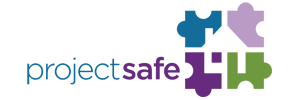
The Project SAFE Group Intervention was developed in 1996 by Dr. David Hansen and the graduate students in the Child Maltreatment Lab. Project SAFE is part of the Family Interaction Skills Clinic (FISC), a specialty clinic through the Psychological Consultation Center at the University of Nebraska-Lincoln (UNL). Doctoral students in the Clinical Psychology Training Program serve as therapists for Project SAFE and are supervised by licensed clinical psychologists. Project SAFE services are currently offered free of charge at the BraveBe Child Advocacy Center.
Project SAFE (Sexual Abuse Family Education) is a standardized treatment program for sexually abused youth and their nonoffending family members. Children who are abused often experience a variety of emotional and behavioral reactions and benefit from opportunities to discuss their feelings and experiences. In addition to helping their child through these challenges, caregivers also deal with their own feelings about what happened and also benefit from the opportunity to share their experiences.
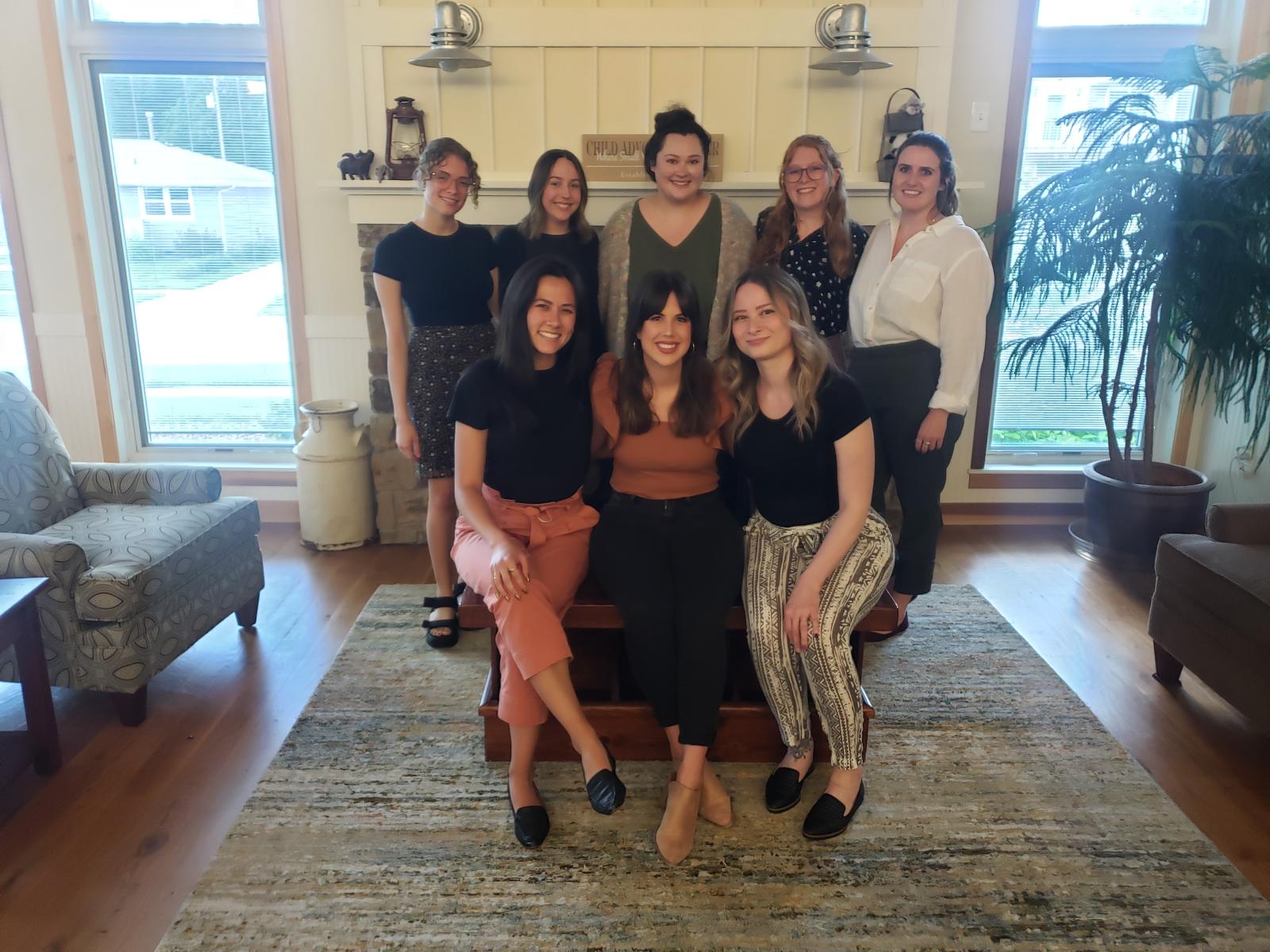
The treatment protocol for Project SAFE was developed from a systematic review of the literature on treatment programs for sexually abused children and their nonoffending parents. Project SAFE is based on a three-factor model of the major areas of functioning impacted by sexual abuse (Futa, Hecht, & Hansen, 1996): (a) the individual or "self" (e.g., self-esteem, guilt, internalizing problems), (b) relationships (e.g., social interactions, externalizing problems with peers and family), and (c) sex (e.g., sexual knowledge, sexual abuse specific issues, sexual behavior problems). Thus, the goals of Project SAFE follow from this model, and include reducing children's sense of stigmatization and isolation associated with the abuse, assisting children to explore and cope with their feelings about the abuse, and empowering children in preventing future victimization. By assisting parents in understanding and dealing with their child's behavior and feelings, the parallel parent group attempts to ensure generalization and maintenance of their child's in-session therapeutic gains. Further, the parent group offers support for parents and other caregivers in recognizing the impact of the abuse on them and their entire family.
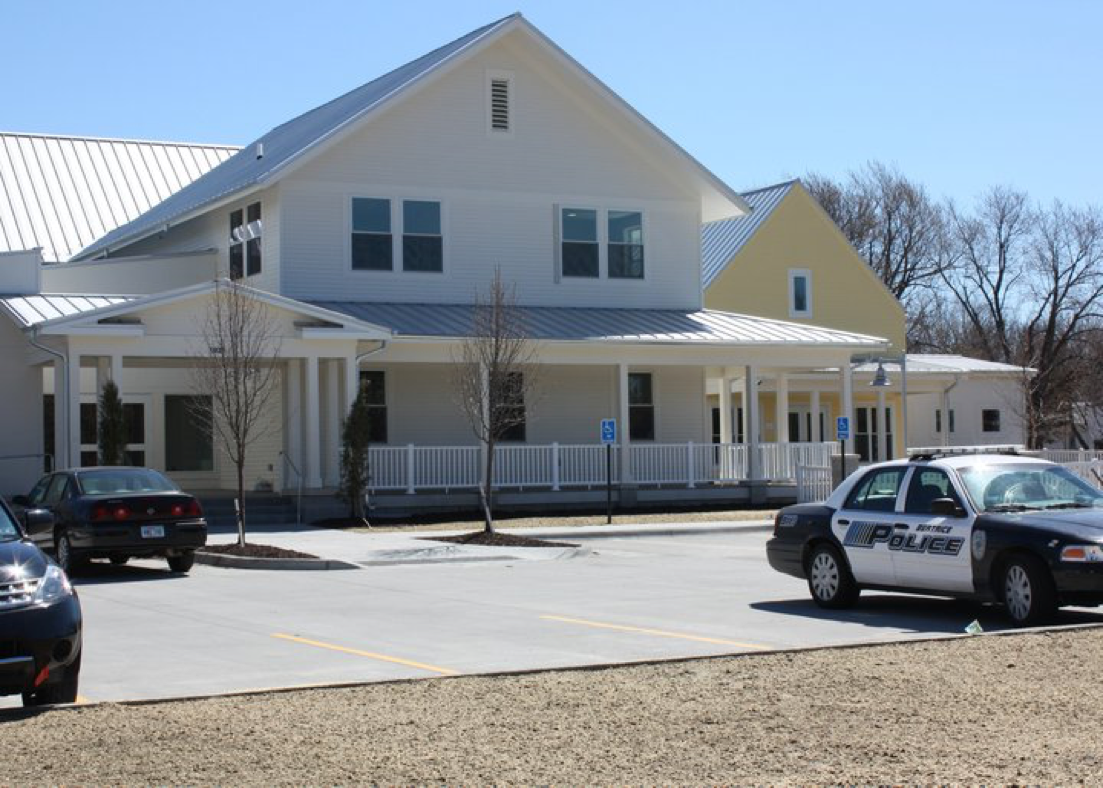 The Project SAFE Group Intervention was successfully implemented beginning in 1996; however, through a relationship with the BraveBe Child Advocacy Center in Lincoln, further treatment needs for victims of sexual abuse and their families were identified. Some specific needs that were identified included: the need for immediate services following the disclosure of abuse, the need for services for children younger than age 7, the need for services for families referred during an ongoing round of group treatment, the need for briefer services for individuals and families, the need for individualized services targeting the individual's current needs and concerns, and the need for services for non-abused siblings in the family.
The Project SAFE Group Intervention was successfully implemented beginning in 1996; however, through a relationship with the BraveBe Child Advocacy Center in Lincoln, further treatment needs for victims of sexual abuse and their families were identified. Some specific needs that were identified included: the need for immediate services following the disclosure of abuse, the need for services for children younger than age 7, the need for services for families referred during an ongoing round of group treatment, the need for briefer services for individuals and families, the need for individualized services targeting the individual's current needs and concerns, and the need for services for non-abused siblings in the family.
Timely, therapeutic intervention helps families deal effectively with the aftermath of disclosure and address complex, abuse-related family issues. Psychological assistance at the time of disclosure is designed to assess the child's and family's needs, and to provide support, psycho-education, and short-term training in effective coping strategies. Additionally, referrals for long-term mental health services can be made if needed by a particular family. With the generous assistance of the the Cooper Foundation, the Woods Charitable Fund, and the Nebraska Child Abuse Prevention Fund, the Parent Support and Education Session (PSES), Brief Family Intervention (BFI), and the Non-abused Sibling Group Intervention were developed to meet the above needs. The identified services began to be offered at the BraveBe Child Advocacy Center to compliment the Group Intervention and enhance the services available to families in 2002.
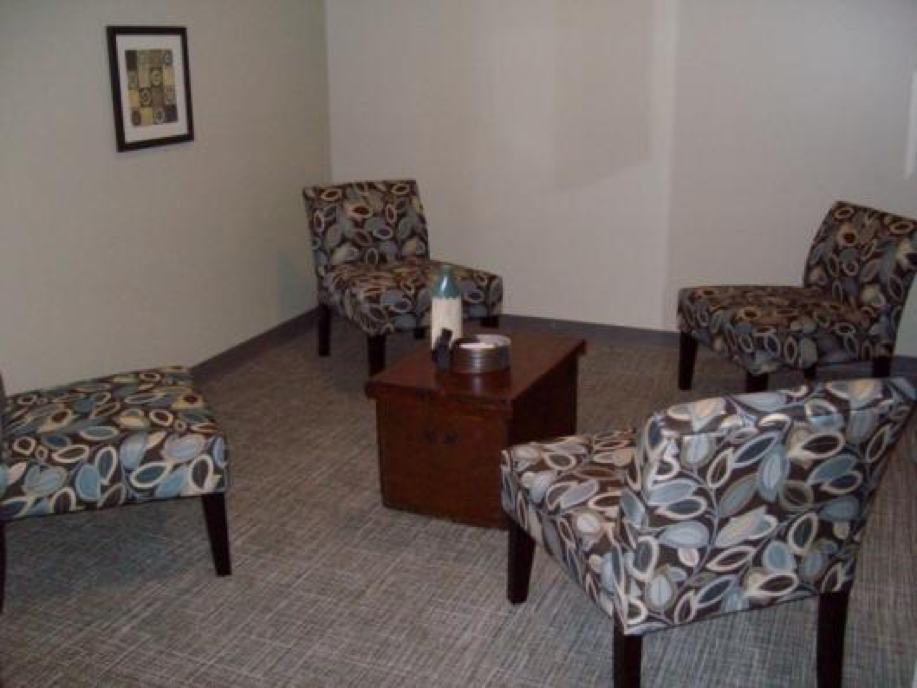 Participants in Project SAFE Group Treatment are also asked to fill out many questionnaires. These help the therapists understand the difficulties that families and children are experiencing, show the progress being made in treatment, and provide information on how to better serve families experiencing similar problems. All information is kept strictly confidential. Families are paid $20 for the first and last times they fill out these questionnaires.
Participants in Project SAFE Group Treatment are also asked to fill out many questionnaires. These help the therapists understand the difficulties that families and children are experiencing, show the progress being made in treatment, and provide information on how to better serve families experiencing similar problems. All information is kept strictly confidential. Families are paid $20 for the first and last times they fill out these questionnaires.
Findings from recent program evaluations have shown Project SAFE to be effective at improving youths' self esteem as well as reducing behavioral problems and trauma-related symptoms. Parents have reported increased feelings of parenting efficacy and improvement in family functioning. Overall, previous group participants report high levels of satisfactions with the program.
Four treatment options are available through Project SAFE:
- Project SAFE Parent Support and Education Session: A one-time crisis session to help parents and caregivers cope with the family situation immediately following disclosure of abuse. This one-time crisis session focuses on assisting the family with immediate needs (e.g., answering questions, clarifying misconceptions), problem-solving about next steps, and helping with coping strategies.
- Project SAFE Brief Family Intervention: Short-term (3-6 sessions), individual counseling for children (aged 4 to 17) reporting child sexual abuse and their nonoffending parents or caregivers. Separate therapists meet with the caregivers and each child for approximately 60 minutes each session. Topics vary depending upon the needs of the family, but tend to focus on sensitive listening and responding to their child; support for feelings of anger, grief, shock, sadness, etc.; prevention strategies; identifying feelings and strategies for coping; addressing and reducing cognitive distortions related to the abuse; and improving problem-solving skills.
- Project SAFE Group Treatment: Group treatment format that meets for 90 minutes a week for 12 weeks. Three separate groups are offered which include a children's group (ages 7-12), an adolescent group (ages 13-17), and a caregiver group for non-offending parents or caregivers.
- Project SAFE Sibling Group Treatment: A fourth group is available for non-abused siblings which meets for 90 minutes a week for 6 weeks and focuses on prevention of sexual abuse and addressing their thoughts and feelings about their sibling's abuse.
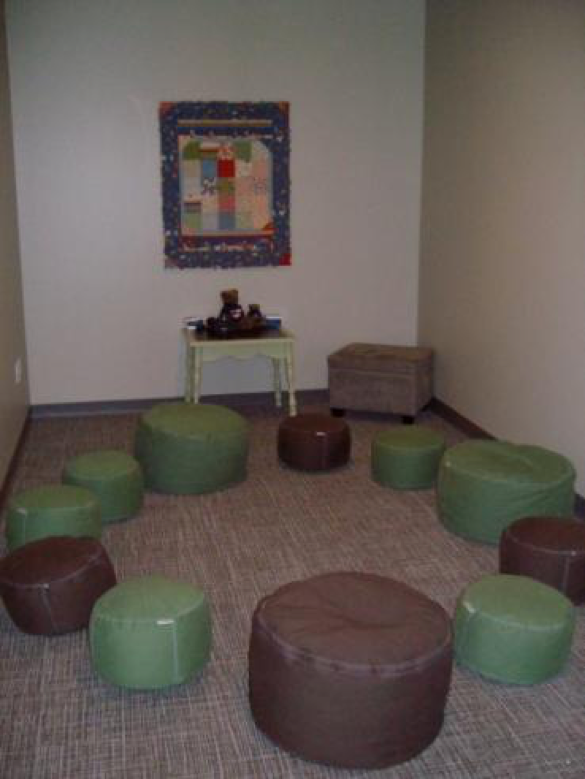
Project SAFE treatment includes the following topics:
- Facts About Sexual Abuse
- Identifying Feelings and Strategies for Coping
- Talking About What Happened
- Changes in the Family
- Stigmatization: Feeling Shame and Guilt
- Sex Education
- Information on Offenders and Why They Offend
- Skill Building for Prevention of Revictimization
Therapists
Each group is co-facilitated by a lead therapist and a co-therapist. The lead therapist for each group is an advanced doctoral student who has received his/her Master's degree and has previously co-facilitated other Project SAFE groups. This co-facilitator method helps to distribute clinical responsibilities, provides opportunity for observing client participation and reaction, allows members to be exposed to different therapeutic styles, ensures group continuity in the absence of one facilitator, gives an opportunity to role-model appropriate interpersonal behavior and skills, and provides additional training for the co-therapist.
Project SAFE clients are typically referred through the advocates at the BraveBe Child Advocacy Center. Additionally, clients are occasionally referred from community mental health clinics or from other sources. If you or your family members are interested in Project SAFE services, please call the Clinical Coordinator at (531) 310-5601. Or, you can call the Psychological Consultation Center at (402) 472-2351 and ask to speak to the Project SAFE Clinical Coordinator.